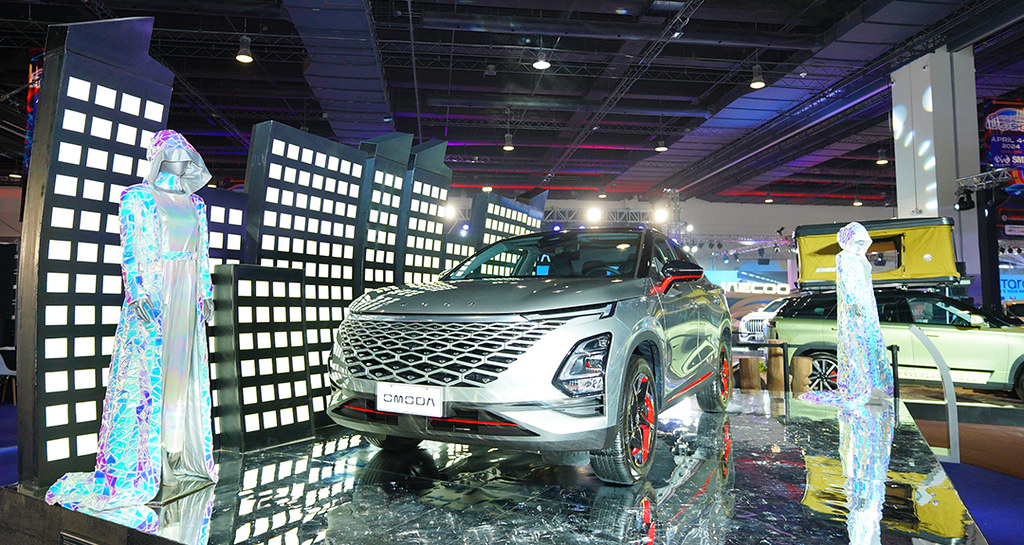The tag “Made in China” often drives the wary Filipino buyer away. Thoughts of inferiority and cheap knock-offs come to mind. Aggressive China bashers are few in number, but their influence has seeped into our consumer culture. While the stereotype may hold some ground, Chinese culture is much more vibrant and robust than what the Filipino consumer makes it to be, especially today when China has learned its lesson. Everywhere, China is thought to be a rising force in global economics. It hasn’t done that with cheap knock-offs. China is taking on the world in all industries. Just look to the third biggest smartphone manufacturer in the world, Xiaomi. In the motoring industry, China looks to shake the world with newcomer BAIC.
Despite being a new face, BAIC has been around since 1958. Officially the Beijing Automotive Industry Holding Co., BAIC started as a state-owned holding company of several automobile manufacturers in China, looking to make a name for itself amidst the torrent of foreign car manufacturers.

History
In 1984, BAIC started a joint venture with the American company, Jeep, leading to its own version, the BJ212, which would eventually evolve into the X424, its current off-road offering. In 1996, it partnered with Foton. In 2002 and 2005, Hyundai and Mercedes Benz joined the roster, respectively. These strategic partnerships enabled BAIC to produce the Hyundai and Benz models that the world has come to love. BAIC remains the official distributor of Foton, Hyundai, and Mercedes Benz in China.
In 2010, BAIC finally decided to enter the race itself by establishing BAIC Motors and opening their own product lines. With the help of intellectual property rights to car technologies bought from SAAB, BAIC had the capacity to build their own fleet. In 2012, they released their E-Series, a line of electric vehicles which would eventually gain traction on the streets of Beijing.
Finally, in 2013, BAIC Motors opened their BAIC International branch, landing in several countries around the world, including our own. Elsewhere, their vehicles landed on the shores of the Middle East, Mexico, Russia, North Africa, Central and South America, and other parts of the ASEAN region.
With 311.56 billion RMB revenue in 2014, it’s not a surprise that the newcomer is already crunching in the numbers, landing the 248th spot in the Fortune Global 500 list of companies. Its vision is as audacious as its revenue. It wants to become the leader in the international Chinese auto industry. How? BAIC International President, Dr. Haiyang Dong has a three-point plan: product differentiation, services differentiation, and localization.

Product differentiation
Their products aren’t supercars, for sure. But they’ve got a winning formula. Their manufacturing plant is big enough to be considered a city, or at least a small town. One million square meters. Modules within the different branches can work on six models at the same time, with a goal of expanding that number to 12 models in the near future. The plant’s efficiency is built on German twin robots working on the cars from the left and the right, with minimal human involvement. The plant is almost completely automated. Their products are works of combined engineering. In 2009, BAIC bought their line’s core technology from SAAB for $200 million. This includes 95/93 vehicle platforms and turbocharged technologies.

The BAIC lineup is headed by the pack leader A520T/A523T with its turbocharged engine that clocks in 184kw/5300rpm and 350 Nm. The elegant A315 sedan is a product of the SAAB 53 platform and is best suited for family use and comfort. The sporty A113/A115 are products of technology adapted from Benz and Mitsubishi and is best suited for youth and fashion. The hardy X424 SUV is the tough off-road monster for BAIC. The MZ40/MZ45 MiniVans have long wheelbases and are ideal for small businesses.
BAIC’s electric vehicle line is composed of the A115EV hatchback, the A115EV sedan, the A523EV, and MZ45EV. While they are just electric versions of their regular lineup, BAIC EV sales was 10,000 units sold last year, a jump from the 4,000 figure when they just started. BAIC plans to double that figure this year.

Service differentiation
The second part of Dr. Dong’s plan is service differentiation. He promises to be customer-centric in aftersales. All BAIC cars have a guarantee of three years or 100,000 km. Spare parts including the entire engine and transmission will be made available. Each vehicle has been tested around BAIC’s 1.5 km track filled with obstacles and turns that mimic realistic driving conditions. Dr. Dong wants to focus on delivering quality products, rather than just crunching in the numbers in terms of sales and revenue. Customer service was non-existent before in Chinese brands. BAIC wants to change that by developing its aftersales program.

Localization in the Philippine market
The third part is localization. Dr. Dong wants to localize everything: R&D, manufacturing, and marketing. He believes that BAIC’s success in the global playing field will rely on getting a deeper understanding of their customer wherever he or she may be.
On July 7, 2014, BAIC signed a distribution agreement with Universal Motors Corporation, Nissan’s former distributor, headed by George Chua. On September 18 of that year, BAIC was launched in the country under the clever moniker Bayan Automotive Industries Co. Minus their electric vehicles, all of BAIC’s vehicles are available in the country. Manila is Dr. Dong’s pilot project. BAIC will constantly study the Philippine market in its first year. Once they know how to approach the Philippine market, expect R&D centers and manufacturing plants to open locally.
Currently, the BAIC showroom is temporarily located at UMC’s showroom at 2232 Chino Roces Avenue, Makati. They have started going all around the country with dealerships in locations like Iloilo and Tacloban with Antipolo, Bacolod, and Cebu already lined up in the near future.
With its success in Beijing and an international plan well under way, BAIC is set to make a statement in the Philippine motoring industry. According to Mr. Chua, BAIC sales here is very promising, with the MZ40 already finishing its initial stock in Tacloban. Once electric vehicles make their way to our roads, BAIC may very well be a top contender. Made in China? Loud and proud.












